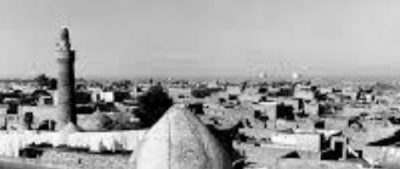Iraq and Iran in Kirkuk oil deal based on military gains: Ideology is extinct so pity the Kurds!
Murad Makhmudov and Lee Jay Walker
Modern Tokyo Times

Iraq and Iran have signed an oil export agreement that links Kirkuk in Iraq to its former nemesis Iran during the period of Saddam Hussein (1979-2003). It is a further reminder how limited fluidity and enormous change is ongoing in Iraq and throughout parts of the Middle East that are rocked by many internal convulsions. Therefore, the latest masters of Kirkuk are quick to tie the rich potential of Kirkuk oilfields to greater geopolitical interests – and hoping to vie more control over a complex and divided region of Iraq.
Indeed, the only commonality that links regional Middle Eastern nations with wealthy European powers, America, China, and the Russian Federation, is the need to exploit the natural resources of other nations. In other words, irrespective if nations are capitalist, communist, Islamic, democratic, or whatever, the real issue on the bones of so many innocents is controlling and exploiting energy resources – tinged with geopolitical issues based on power concentration.
In other words, Gulf petrodollars to controlling and exploiting energy markets are the one common denominator that nullifies all notions of ideology, human rights, and democracy. Hence, nations like Saudi Arabia have exploited Gulf petrodollars in order to further the cause of Salafi Islam that is wrecking havoc on many nations to various degrees. However, at no point did major democratic nations care despite all non-Muslim faiths being banned in Saudi Arabia and women suffering enormous oppression. Equally, while Muslims face persecution in Xinjiang in China, and in reversal communism is banned in Saudi Arabia and hated in Iran, the same nations gladly trade just like Iran ignores the fact that Shia Islam is illegal in Malaysia.
The Kurds
Therefore, the “little people” in the Middle East and North Africa who include the Alawites, Assyrians, Berbers, Coptics, Maronites, Shabaks, various Christian sects, Yazidis, and others, are all expendable. Likewise, the Kurds still can’t expect a unitary nation-state despite many nations utilizing them during times of crisis. For example, many Kurds both male and female died valiantly against ISIS in Northern Syria and received support from America. Yet, in time both East and West will abandon the Kurds – while Sunni Islamists, Turkish nationalists exploiting Islamism, and Shia radicals will try to take them away from their ethnic identity based on manipulating religion.
In this sense, Islam is yet another thing that is being used to keep the Kurds down and divided. After all, many Kurds joined ISIS and killed their fellow Kurds in the name of Salafi Islam. Similarly, in Turkey, it is secular Kurdish Muslims and socialist Kurds – and others – who are in the vanguard of protecting Kurdish identity and rights compared with Islamist Kurds who are easier to control. Therefore, in modern Turkey under President Erdogan, he fully understands how Sunni Islamism can be utilized to keep the Kurds downtrodden. Given this reality, it is time for Kurds to reawaken the older faiths of Zoroastrianism and Christianity – or to create a Kurdish Islam that keeps Islamism at bay. If not, then Iran, Iraq, and Turkey will continue to develop their nation states at the expense of the Kurds – and fellow Kurds in Syria will suffer from this weakness.
Turning back to the latest change in Kirkuk, then Iraq and Iran have etched an agreement to exploit the oilfields of Kirkuk based on the changing military tide. This reality began to unfold after October 16 when the Shia Hashd al-Shaabi militias backed by Iran and the armed forces of Iraq took over the province of Kirkuk. Obviously, behind the scenes, America will have put pressure on the Kurds in Kirkuk – and other parts of Northern Iraq – to not involve itself in major military confrontations. Therefore, the changing tide in Kirkuk is enabling Iraq and Iran to etch out the new energy contract.
Reuters reports, “Iraq has signed an agreement with Iran to export crude oil from its Kirkuk oilfield with a rate of between 30,000 and 60,000 barrels per day, an Iraqi oil official said on Saturday.”
In time, Iraq hopes to boost the export of crude oil dramatically from the oilfields in Kirkuk to Iran. Hence, the infrastructure will be developed alongside a future pipeline. Therefore, the geopolitical dynamics are once more changing and the same can be said of the position of the Kurds throughout the region based on countless negative forces that emanate from East to West.

Modern Tokyo News is part of the Modern Tokyo Times group
DONATIONS to SUPPORT MODERN TOKYO TIMES – please pay PayPal and DONATE to sawakoart@gmail.com
http://moderntokyotimes.com Modern Tokyo Times – International News and Japan News
http://sawakoart.com – Sawako Utsumi personal website and Modern Tokyo Times artist
https://moderntokyonews.com Modern Tokyo News – Tokyo News and International News
http://global-security-news.com Global Security News – Geopolitics and Terrorism
PLEASE JOIN ON TWITTER
https://twitter.com/MTT_News Modern Tokyo Times
PLEASE JOIN ON FACEBOOK